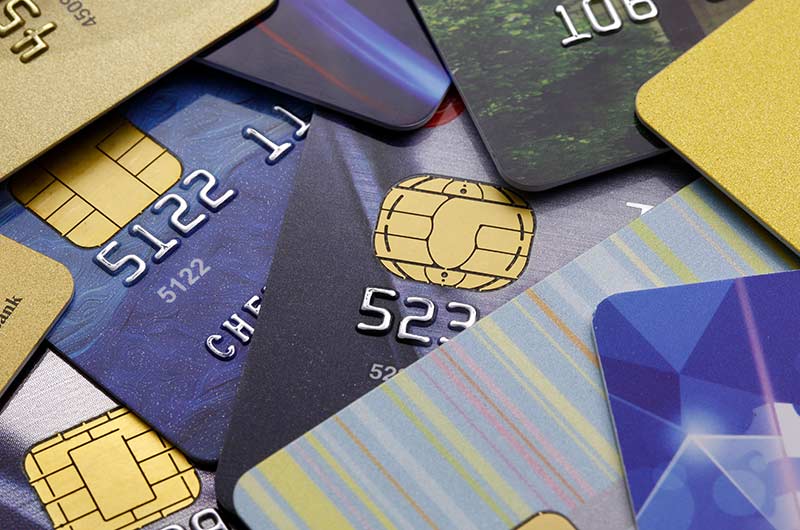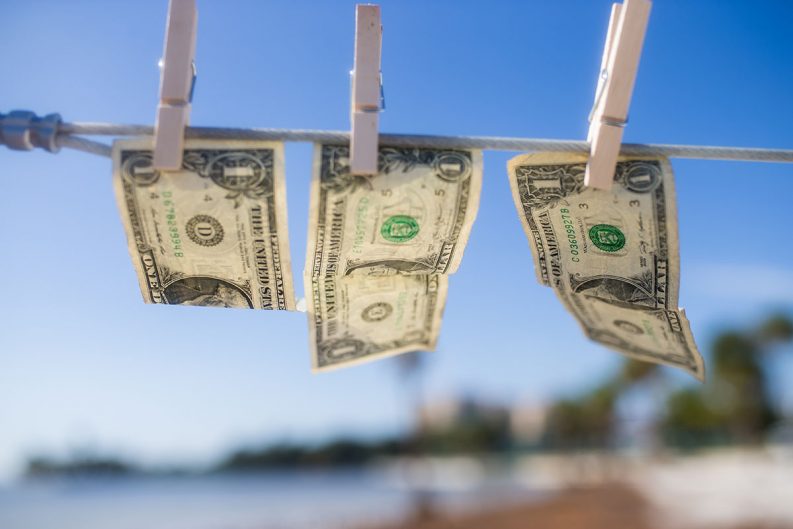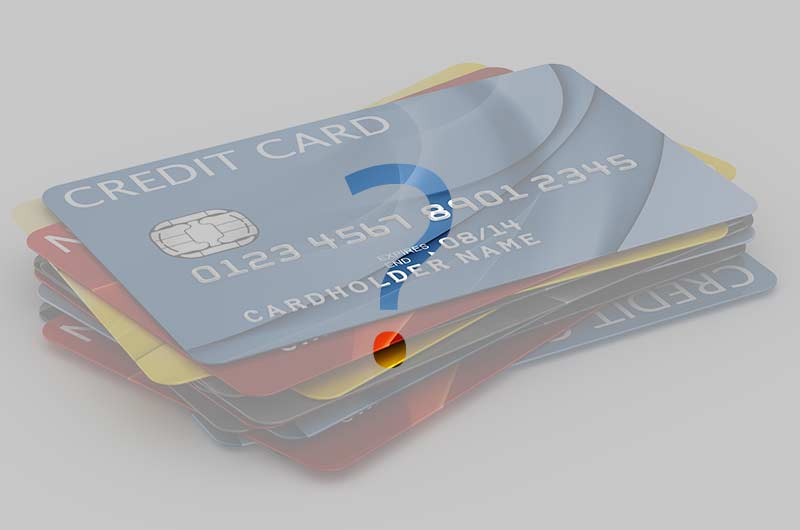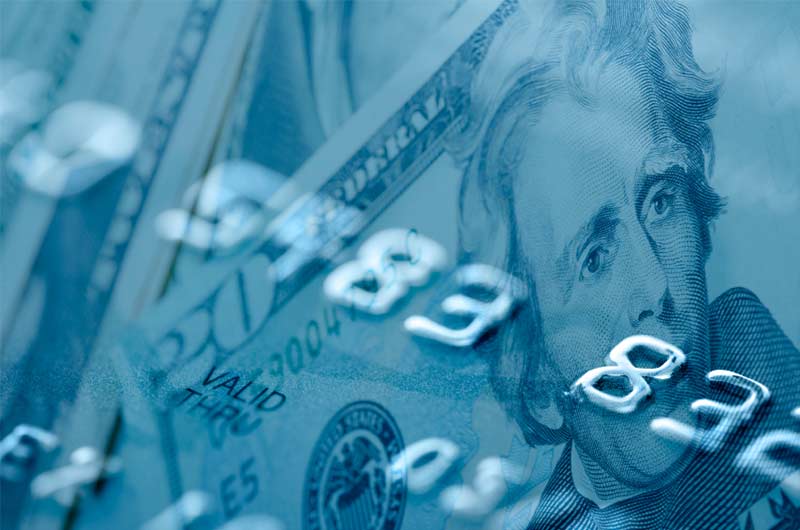Can Secured Credit Cards Become Unsecured?
Secured cards can help build credit for people who have little or no credit history, or consumers who may have damaged credit. If the issuer of the card reports to the major credit bureaus, you can slowly build credit by making your monthly payments on time.

What happens if you eventually want an unsecured credit card? Do you have to get a new card, or can secured cards become unsecured? The good news is that secured cards can sometimes be upgraded to unsecured cards, as long as you take the appropriate steps. Let's investigate how this can happen.
Secured Cards Can Graduate to Unsecured Credit Cards
When a secured card turns into an unsecured card, it's said to "graduate." Consider this as a mark of accomplishment highlighting your credit building efforts and sound financial habits. In most cases, the secured card issuer will refund the security deposit you initially had to make in order to obtain the card; you will then receive a new unsecured credit limit to use. That may be lower than the secured credit limit you had before, but this time, you're not the one funding the credit limit.
If you graduate to an unsecured card, you may be able to keep the physical card you already have, or you may be issued a new card. Each issuer has their own protocol for this process. You'll need to continue making on-time monthly payments with the new card, just like you did for your unsecured card. This will boost your credit score even further.
Not all secured cards have the ability to graduate. If you want to increase your credit limit on your existing secured card, you can. You'll just need to provide an additional deposit to fund the increase. Carefully review your secured card's terms of agreement to determine if you can graduate to an unsecured line of credit.
Best Secured Cards That Can Become Unsecured
If you want a secured credit card that can graduate to an unsecured credit card, either of these options would be a good fit for you:
Merrick Bank Secured Visa® from Merrick Bank
The Merrick Bank Secured Visa® is specifically designed to upgrade to an unsecured line of credit with time. After the account is open for 9 months, you can get an additional line of credit with no security deposit required. The card comes with a variable APR of 17.49%, along with an annual fee of $36.
Assent Platinum 0% Intro Rate Mastercard Secured Credit Card
The Assent Platinum Mastercard Secured Credit Card features 0% APR for the first six months, which is practically unheard of for secured cards! The card supports deposits of up to $2,000, and it has a convenient online platform for account monitoring.
First Progress Platinum Prestige Mastercard® Secured Credit Card
The First Progress Platinum Prestige Mastercard® Secured Credit Card is a full-featured Mastercard. You can use it for car rentals, hotel reservations, and almost any purchase you can think of. The card supports deposits between $200 and $2,000, and it has a low variable APR of 9.99%.
How to Improve Your Chances of Getting an Unsecured Line of Credit
If you want to graduate to an unsecured credit line, you need to show the card issuer that you can successfully manage your credit card. This tells the company that they will have limited risk in approving you for unsecured credit. The lower the risk, the higher your chances are of approval.
Here are some smart money habits to increase your chances of graduating to an unsecured credit card:
- Make your monthly payments on time every month. Late payments are a sign of improper money management, and they can hurt your credit score. On-time payments are a mark of responsibility. Even if you can only pay the minimum amount due for the month, make sure the payment is submitted before the due date.
- Pay off your balance in full if you can. This keeps your credit utilization rate down, which measures how much you owe compared to how much credit is available to you. A low credit utilization rate shows creditors that you can pay back your debt. If you pay it off within the card's grace period, you can bypass interest on your transactions. This will save you significant money in the long run.
- Don't upgrade until you're ready. You'll need at least six months of positive payment history before you can request an unsecured credit upgrade, but that doesn't mean you should do so right away. If you're struggling to make your credit card payments every month, you may not be ready to handle unsecured credit yet. Practice with secured debt for a while until you get a firm handle on debt repayment.
- Pay off your balance before requesting an upgrade. If your card is maxed out when you attempt to graduate, you have less leverage for negotiation. If you do not owe any money on the card, the issuer is more likely to approve you for unsecured credit. If you can't pay off your balance at this time, it's probably not ideal to graduate to a new card. Wait until you're in a better place financially before making this move.
- Create a repayment plan before making any purchases with your card. How are you going to pay for this transaction? Will you be able to pay off the card when the bill is due, or will you need to break it up into payments? If you need several months to pay off your card balance, make sure you can feasibly handle that before making a purchase. Otherwise, you're setting yourself up for unmanageable debt in the future.
- Explore your options before getting an unsecured line of credit. Should you get a credit line with the same card issuer, or would you be better off with an unsecured credit card from a different provider? We'll discuss this further in one of the sections below, but it's important to note your options. You may not have to graduate at all. You may be able to open a new credit card account with better fees, interest rates and benefits.
- Don't expect a high unsecured line of credit. You may have had a $2,000 secured credit line, but that doesn't mean you'll be approved for something that high. The card issuer will likely start you off with a small credit limit, which you can increase after several months of on-time payments.
If you focus on making on-time monthly payments and paying off your balance as quickly as possible, you stand a good chance at getting approved for an unsecured credit line.
How Long Does It Take to Upgrade from Secured to Unsecured Credit?
The amount of time it takes to upgrade from a secured card to an unsecured credit card will depend on several factors, such as your credit score, previous credit challenges, and the card's terms of agreement.
Also keep in mind that changes to your credit score may take 1-3 months to post. You won't see a big leap right away, and neither will your credit card company. Keep an eye on your credit score and credit reports to track your improvements. You can request an upgrade after several noticeable months of progress.
Should I Upgrade My Secured Credit Card or Get a New Credit Card?
There are pros and cons to both options, and neither one is necessarily the 'right' answer. You'll have to determine what is right for your needs specifically.
If you keep your secured card and get a new credit card, you will have to pay fees on both cards. However, you'll be able to maintain your existing credit limit and get a new credit limit. This could keep your credit utilization low because the money you spend on the card(s) will represent a lower percentage of your total credit line.
If you get a new card and cancel your secured card, you'll get your security deposit back and not have to worry about the fees on your secured card. In the process, you'll most likely lower your total credit available, which could hurt your credit utilization rate. It also starts the clock over for your length of credit history (another factor in your credit score), since you're canceling the account that has been open longer.
If you graduate to an unsecured line of credit from the same card issuer, your chances of approval might be higher than working with a new issuer. This company has an up-to-date payment history on your account and an active relationship with you as a customer. Thus they are more likely to approve your application. Nevertheless, your new line of credit may have higher fees or fewer perks than what you could get opening a new credit card with a different provider.
As you can see, there are several variables at play in this decision. If your secured card provider offers you an upgrade option, review the features on your potential new card. Compare those features to other cards for bad credit, limited credit, poor credit, or whatever category you fit into. Then make an informed decision that aligns with your finances.
Are There Fees for Graduating to an Unsecured Credit Card?
Some issuers may charge a credit limit increase fee when graduating to an unsecured credit line or increasing your credit limit. This is not always the case though. If you decide to get a new credit card, you will need to analyze that card's fee structure to anticipate the costs. For instance, if there is an annual fee on the card, you may be charged that the moment you open the account. If you keep your unsecured card open in addition to your new card, you will need to continue paying the fees on the secured card on top of the new card's fees.
What Happens to My Security Deposit If I Change Credit Cards?
If you graduate to an unsecured credit card with the same issuer, you should receive a refund for your security deposit, minus fees or charges on the card. If you get a new unsecured credit card, you have the option to keep the secured card account open or cancel it completely. If you cancel it, you'll once again receive a deposit refund. If you keep the card open, your deposit will remain with the account.
Note that there are benefits to keeping a secured credit card open, even if you have a separate unsecured card. The length of your credit history accounts for part of your credit score, so it is beneficial to keep a longstanding account open. The only downside is that you will need to pay the annual or monthly fees on the card, regardless of whether you're actively using it. You can decide if those costs are worth the credit you're able to build by keeping the account open.


